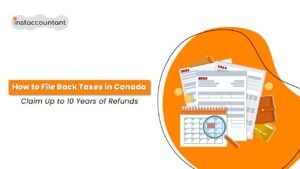Ever heard of the Underused Housing Tax (UHT) in Canada? This relatively new tax, introduced in January 2022, aims to encourage property owners to either rent out or sell their homes, thereby increasing the availability of affordable housing across the country. If you own a residential property, it’s essential to understand how the UHT may affect you. Let’s break it down!
What is the Underused Housing Tax (UHT)?
The UHT is an annual tax that applies to residential properties that are not occupied or rented for at least six months of the year. The goal is to motivate property owners to make their homes available for rent or sale, ultimately addressing the housing supply crisis in Canada.
Who Needs to File a UHT Return?
If your name is listed on the title of a residential property, you may be required to file a UHT return. This includes various types of properties, such as:
- Single-family homes
- Condominiums
- Apartments
- Townhouses
- Cottages
- Vacation homes
However, not all properties are subject to the UHT. There are several exemptions that may apply to you, such as:
- You live in the property as your principal residence for at least six months of the year
- You rent out the property for at least six months of the year, in periods of 30 days or more
- You are undergoing major renovations or repairs on the property
- You are unable to occupy or rent out the property due to legal or regulatory restrictions
- You are a member of the armed forces or a diplomat who is temporarily stationed outside Canada
To find out if you qualify for any of these exemptions, you can use the CRA self-assessment tool. This tool will help you determine if you need to file a UHT return, and how much tax you may owe.
When Do You Need to File a UHT Return?
The deadline for filing your UHT return for the 2023 calendar year has been extended to April 30, 2024. This means that you have until then to report your property status and usage for the entire year of 2023.
If you fail to file your UHT return on time, you may face penalties. For individuals, the penalty for late filing is $5,000. For corporations, the penalty for late filing is $10,000. You may also be charged interest on any unpaid tax.
How Do You File a UHT Return?
Filing your UHT return is now easier than ever. You can file online using the CRA My Account service. All you need is your social insurance number (SIN), date of birth, and postal code.
To file your UHT return online, you will need to provide the following information:
- Your Social Insurance Number (SIN), date of birth, and postal code.
- The address and legal description of your property
- The percentage of ownership by yourself and any other owners
- The percentage of ownership by any immediate relatives who are Canadian residents
- The usage details for your property for each month of 2022
- The amount of tax you owe, or the exemption you claim
You will also need to upload some supporting documents, such as:
- A PDF copy of the lawyers’ Title Transfer document
- A PDF copy of the property tax settlement for the most recent year
- A PDF copy of any rental agreements or receipts
Once you have completed your UHT return online, you will receive a confirmation number and a reference number. You will need these numbers to make your payment or to check the status of your return.
Tips and Reminders
- Use the CRA self-assessment tool to determine if you need to file a UHT return and how much tax you may owe.
- File your UHT return on time to avoid penalties and interest on unpaid tax.
- Keep accurate records of your property usage and supporting documents to ensure a smooth filing process.
- Consult with a tax professional if you have any questions or concerns about the UHT.




